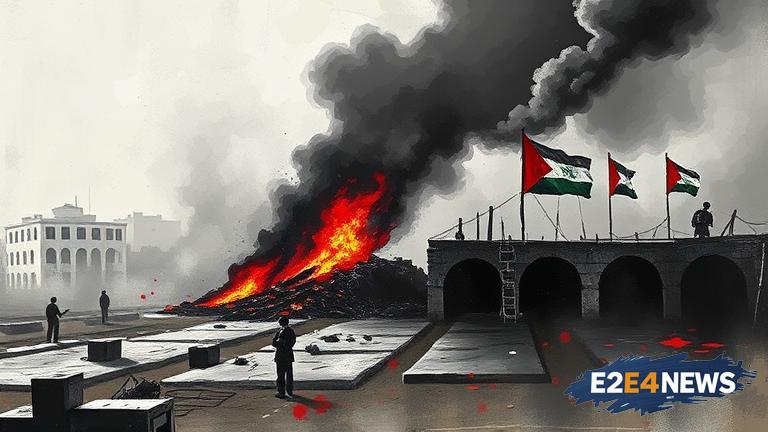The notion of a genocide in Gaza has been a topic of heated debate in recent years, with many claiming that Israel’s actions in the region constitute a systematic and deliberate attempt to destroy the Palestinian population. However, a closer examination of the facts reveals a more nuanced and complex situation. According to Francis Menton, a renowned expert on the subject, the claim of genocide in Gaza is grossly exaggerated and lacks concrete evidence. In his recent article, Menton argues that the situation in Gaza is a result of a combination of factors, including Hamas’s terrorist activities, Israel’s security concerns, and the region’s economic and humanitarian challenges. Despite the dire circumstances, there is no conclusive evidence to support the claim of genocide. In fact, the Palestinian population in Gaza has been steadily increasing over the years, which contradicts the notion of a systematic attempt to destroy the population. Moreover, Israel has consistently taken steps to minimize civilian casualties and provide humanitarian aid to the region. The international community has also been involved in providing aid and support to Gaza, with many countries and organizations contributing to the region’s development and humanitarian needs. However, the situation remains complex, and a lasting solution can only be achieved through a comprehensive and negotiated settlement between Israel and the Palestinians. The claim of genocide in Gaza has been perpetuated by various groups and individuals, often with a clear political agenda. It is essential to approach this topic with a critical and nuanced perspective, considering multiple sources and viewpoints. The media has a significant role to play in shaping public opinion, and it is crucial to ensure that reporting on the subject is accurate and balanced. In conclusion, while the situation in Gaza is undoubtedly challenging, the claim of genocide is unfounded and lacks concrete evidence. A more constructive approach would be to focus on finding a lasting solution to the conflict, rather than perpetuating unsubstantiated claims. The international community must work together to address the region’s humanitarian and economic needs, while also promoting a negotiated settlement between Israel and the Palestinians. This can only be achieved through a comprehensive and nuanced understanding of the complex issues at play. Furthermore, it is essential to recognize the importance of accurate and balanced reporting, as well as the need to approach this topic with a critical and open-minded perspective. By doing so, we can work towards a more informed and constructive dialogue, ultimately contributing to a more peaceful and stable region. The situation in Gaza is a stark reminder of the complexities and challenges of the Middle East conflict, and it is crucial that we approach this topic with sensitivity and nuance. The claim of genocide in Gaza has been widely debunked by experts and evidence, and it is time to shift the focus towards finding a lasting solution to the conflict. The Palestinian population in Gaza deserves our support and solidarity, but this must be based on a accurate and nuanced understanding of the situation. We must be cautious of perpetuating unsubstantiated claims and instead work towards promoting a constructive and informed dialogue. The international community has a critical role to play in addressing the region’s humanitarian and economic needs, and it is essential that we work together to find a lasting solution to the conflict. In the end, a comprehensive and negotiated settlement between Israel and the Palestinians is the only way to achieve a lasting peace in the region. The claim of genocide in Gaza is a stark reminder of the dangers of misinformation and the importance of approaching complex issues with nuance and sensitivity. As we move forward, it is essential that we prioritize accuracy, balance, and constructive dialogue, ultimately contributing to a more peaceful and stable region.
